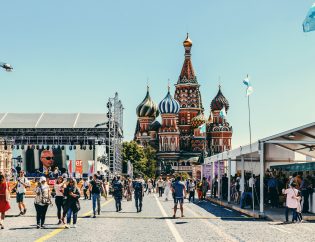Swift change in a short period
There is no doubt that in the past 6 to 7 years Malta has undergone rapid social and economic change. The latest data from the Eurobarometer survey can help shed some light onto the change that has occurred.
In the Eurobarometer survey issued in Autumn 2012 the main concerns of the Maltese were listed as being the following -

This has changed drastically when compared to the recently published Eurobarometer of Spring 2019, with the main concerns of the Maltese being the following (as highlighted):

Whilst in 2012 the main concerns of the Maltese where economic related, the strong performance of the Maltese economy in recent years meant that the Maltese are not concerned anymore on economic related issues or government debt (government in recent years has been running an annual budgetary surplus) but has shifted its concern to issues related to Immigration and the Environment. This is mainly due to the high influx of both EU and non-EU migrants to Malta which has been predominantly been spurred on by the high economic growth being experienced in Malta. One of the spill-over effects of this influx has been a very rapid increase in building permits applications, approvals and the subsequent increase in construction activity especially from 2017 onwards which in turn has created several environmental issues.
This shift is very much inline with a cornerstone management theory called Maslow’s Hierarchy of Needs
With the main most basic “Physiological needs” being satisfied as a result of the economic growth experienced in recent years, the focus has now shifted to the “Safety needs”, whereby much more persons are becoming sensitive to the need to feel safe in Malta i.e. the need for less air pollution and a general safeguard of Malta’s environment.
The current state of affairs has led some to conclude that the current rate of progress is having a negative effect on the country. We contend that progress can never been seen as a negative but rather it is the lack of planning or no planning at all which is having a negative impact.

Overview of the European Statistics on Income and Living Conditions (EU-SILC)
The survey shows that in 2018 the number of persons living in households with a national equivalised income below the at-risk-of-poverty line (€8,868) was 78,685. This translates into an at-risk-of-poverty (ARP) rate of 16.8%, 0.1% higher than that recorded for the previous year.
As can be seen below the ARP rate of those with dependent children decreased while those without dependent children increased. The increase was mainly due to the increase of the ARP rate of those aged 65+ and over.

In 2018, the severe material deprivation rate (SMD) among persons living in households was 3%. The two most influential variables contributing to this decrease were the ability of households to spend one week’s annual holiday away from home and ability of households to face unexpected financial expenses. It is interesting to note the progress registered over the years in this regard, with 64.2% in 2009 and 30.6% in 2018 declaring to be unable to take a holiday.

Inbound Tourism: Have we reached the limit?
Inbound tourists for the first six months of 2019 amounted to 1,208,068, an increase of 3.9% over the same period in 2018. Total nights spent by inbound tourists went up by 2.4%, reaching nearly 7.9 million nights. Total tourism expenditure was estimated at €883.5 million, 5.1% higher than that recorded for 2018. Total expenditure per capita stood at €731, an increase of 1.1 % when compared to 2018.
Interesting to note that even though there was an increase in the number of inbound tourists and an increase in the number of total nights, the number of nights from January to June 2019 spent in hotels was below the level registered for the same period in 2018 (3.7% decrease) as can be seen below. The total increase in the number of nights is being absorbed by non-hotel accommodation which in the first 6 months of 2019 registered a 17.8% increase in the number of nights compared to the same period in 2018.

If one delves deeper, one can see (below) that the reduction in hotel nights mainly took place in the 5 star and 3 star sectors

An interesting paper entitled “HAS OVERTOURISM REACHED THE MALTESE ISLANDS?” authored by Lino Briguglio and Marie Avellino was recently published (April 2019). The paper includes a survey held whereby respondents were asked to agree or disagree with the following statements:
- I wish to see more tourists in the town/village where I reside.
- I think that too many tourists create social discomfort in the town/village where I reside.
- I think that too many tourists degrade the physical environment of the town/village where I reside.
- I wish to see more hotels built and restaurants and other shops opened in the town/village where I reside to cater for tourists.
In response to the statement “I wish to see more tourists in the town/village where I reside” only 18.3% of the respondents agreed that they wished to see more tourists in their town or village, while 51% of the respondents disagreed. The remaining 30.7% were undecided. Only a small minority wanted to see more tourists visiting the islands.
In response to the statement “I think that too many tourists create social discomfort in the town/village where I reside”, 44% agreed, while 39% disagreed. The remaining 17% were undecided.
In response to the statement “I think that too many tourists degrade the physical environment of the town/village where I reside”, 45.8% agreed, while 37.8% disagreed. The remaining 16.4% were undecided.
In response to the statement “I wish to see more hotels built, and restaurants and other shops opened in the town/village where I reside to cater for tourists.” only 16.5% agreed, while 75.5% disagreed and 8% were undecided.
The paper concludes that the survey results described in this chapter, would seem to support the hypothesis, that in the Maltese Islands over-tourism has set in, given that only a clear-cut minority of respondents indicated that they wished to see more tourists in their location. In addition, a majority of respondents stated that they thought that too many tourists usher in social discomfort and environmental degradation.
These findings echo a similar sentiment that was recently expressed by Tony Zahra, President of the Malta Hotels and Restaurants Association (MHRA) who voiced a concern that Malta may have reached its limit in terms of tourism numbers.
Public Finance – a deficit of €126 million in the Consolidated fund be end July 2019
Between January and July 2019, Government’s recurrent revenue rose by €380.5 million and amounted to €2,638.6 million. This represented a 16.9% increase from the €2,258.1 million reported in revenue during the corresponding period in 2018.
Recurrent expenditure stood at €2,373.1 million, €305.7 million higher than the corresponding amount registered by the end of July 2018. Government’s capital expenditure registered an increase of €95.3 million from the same period last year and added up to €282.4 million.
The difference between total revenue and expenditure resulted in a deficit of €126 million being reported in the Government’s Consolidated Fund by the end of July 2019, compared to a deficit of €117.2 million in the same period in 2018. The main driver in the difference was a higher reported increase in total expenditure, consisting of recurrent expenditure (+€305.7 million) and capital expenditure (+95.3 million), in comparison to recurrent revenue (+€380.5 million).
It is interesting to note that foreign employees working in Malta paid €128 million in National Insurance contributions in 2018. That is €26 million more than in 2017 and almost €50 million more than in 2016.
Malta’s Latest Economic & Financial related News

The Malta.AI Taskforce, commissioned by the Maltese Government to draft the Malta AI National Strategy, on August 9, 2019 launched a public consultation on its proposed ethical AI Framework document devised by its Legal and Ethical Group.
The consultation document entitled ‘Malta Towards Trustworthy AI’ is seeking the public feedback on the guiding AI principles and trustworthy AI requirements as set out in the mentioned document. The purpose of the Malta Ethical AI Framework is to establish a set of guiding principles and trusted AI governance and control practices that can serve as the foundation for the design and implementation of these broader constructs.
The full consultation document can be accessed by clicking on the following link:
https://malta.ai/wp-content/uploads/2019/08/Malta_Towards_Ethical_and_Trustworthy_AI.pdf
TOP QUOTE












